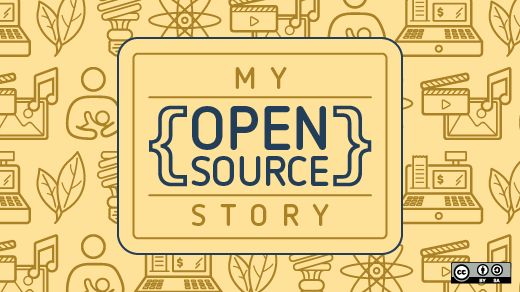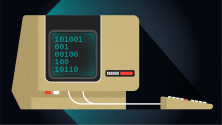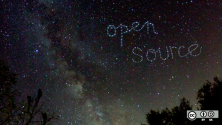I was introduced to open source through immersion when I learned C and Perl in college. Compared to previous programming languages like BASIC and Pascal, which I had learned only from textbooks, I learned C and Perl in the context of the Internet.
I would ask and answer questions on USENET newsgroups, and I got to know many people who were just as enthusiastic about learning and sharing their knowledge. I would download various programming libraries, tools, and other programs, build them, and try them out. I was a kid in the world's biggest candy store—one where all of the candy was free, never ran out, and new types were being made all the time. I also discovered that I could be a confectioner as well.
After I graduated from college I started working at Hewlett-Packard, where I found myself quickly solving problems with open source resources. Open source would play a transformational role in my 16.5 year career at HP, time and time again. I championed the migration of HP's Enterprise Directory platform to Linux and would later migrate the software itself to OpenLDAP (with HP funding substantial contributions to the codebase).
In 2004, I became the founding Global Lead for HP's Open Source and Linux Profession (OSLP), a community of practice that would grow to thousands of technologists in the company. OSLP members increased HP's use of and contribution to open source significantly. In 2005, I gave a keynote presentation at OSCON on enterprise IT as an open source powerhouse. At HP's Open Source Advisory Council events in 2007 and 2008, I invited industry luminaries to inspire and educate some of HP's biggest customers on the power and potential of open source. Open source became my strongest value proposition to HP and its customers.
In 2009, I decided to leave HP and become an independent consultant. I presented at the inaugural LinuxCon on "Transforming Your Company with Open Source." Over time, my engagement with open source became more introspective. I wanted to integrate its lessons more fully into the personal development lessons that I was learning through my ongoing studies of psychology and spirituality. I thought back to the kid in the candy store. What open source was doing was connecting (and confronting!) me with the energy of abundance. This is the kind of energy that encourages positive action while loosening attachment to the fruits of that action, increasing self-awareness in the process. I wrote about this in a 2011 article on Opensource.com, and expanded on it further in chapter 3 of my book Enlightening Technical Leadership in 2013.
Through this process of personal growth, my attitude toward open source has evolved to a more discriminating, holistic approach that embraces paradox. I can more fully explore the value of both "open" and "closed" perspectives alike, and when I do, I find that these worlds aren't as separate as I may have once thought. There are subtle aspects of closed within open, as well as of open within closed. Even though I still have a preference for open source, it's less compulsive in nature and flows more naturally.
I'll close with a quote from my book:
As I mentioned before, open source confronts us with abundance. In this role, it's not just a placid lake of crystalline turquoise water. It's a river of whitewater that plunges through towering waterfalls. Open codebases, knowledge repositories, and streams of communication are created and expanded every day. We are splashed by the recognition that we can't possibly consume it all, let alone claim it for ourselves. Perhaps this alarms us, even throws us into existential crisis. But after sitting with it for some time, we break out into a knowing smile. We start to laugh at ourselves, at how zealously we sometimes pursue the acquisition of knowledge, skills and capabilities. We pay closer attention to the lessons in self-knowledge that arise in these external pursuits, and discover abundant wholeness. We choose activities that further reveal and express this wholeness, and allow attachments and aversions to dissipate. We see the wisdom in Rumi's quote: "You are not a drop in the ocean. You are the entire ocean in a drop."
This article is part of a series called My Open Source Story. To participate and share your open source story, contact us at: open@opensource.com.







Comments are closed.